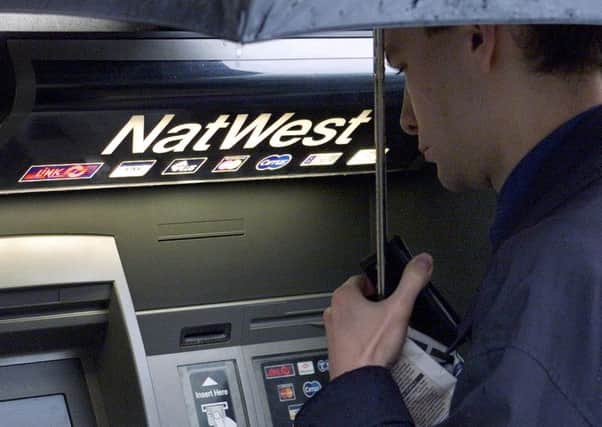Martin Flanagan: Business to pay banks for being in credit


Royal Bank of Scotland-owned NatWest has told more than a million business customers that it may have to charge them for depositing money in their accounts as Britain flirts with negative interest rates. And at the “challenger” end of the banking waterfront, Virgin Money has shelved plans to enter the lending market for small and medium-sized enterprises (SMEs), citing the greater economic uncertainty after the UK’s referendum vote to leave the European Union.
Virgin, which has made decent strides with a relatively limited financial offering in recent years, makes the reasonable case that it is probably not the best time to be developing new product lines. Branching out into SME lending now would be setting sail into a freshening wind under a cloudy sky.
Advertisement
Hide AdAdvertisement
Hide AdSME lending is not the safest area of finance for banks, given the risks and rates of failure, and Virgin has decided that for now discretion is the better part of valour.
Meanwhile, NatWest has reportedly flagged that while it has no plans to levy charges on business accounts in credit such a move cannot be ruled out if Britain joins the negative interest rate club.
This possibility will come into sharper focus next week when the Bank of England is expected to cut interest rates to a new historical low of 0.25 per cent.
Even though putting the heavy arm on businesses is hypothetical, it is slightly embarrassing for NatWest and its owner RBS as the majority taxpayer-owned bank has trumpeted its commitment to small business lending in the wake of some embarrassing independent reports into its failings in the area in the past.
But, as the Chinese proverb has it, we live in interesting times. Where RBS has gone in highlighting adverse possibilities, others of the Big Five in British banking may follow.
Business organisations warned of short to medium-term volatility if the Brexit argument won the day last month, and, while the blue-chip stock market has largely held its nerve so far, the banking sector cannot ringfence itself from policymakers’ responses.
The banks are at the business end of the post-Brexit challenges in every sense.